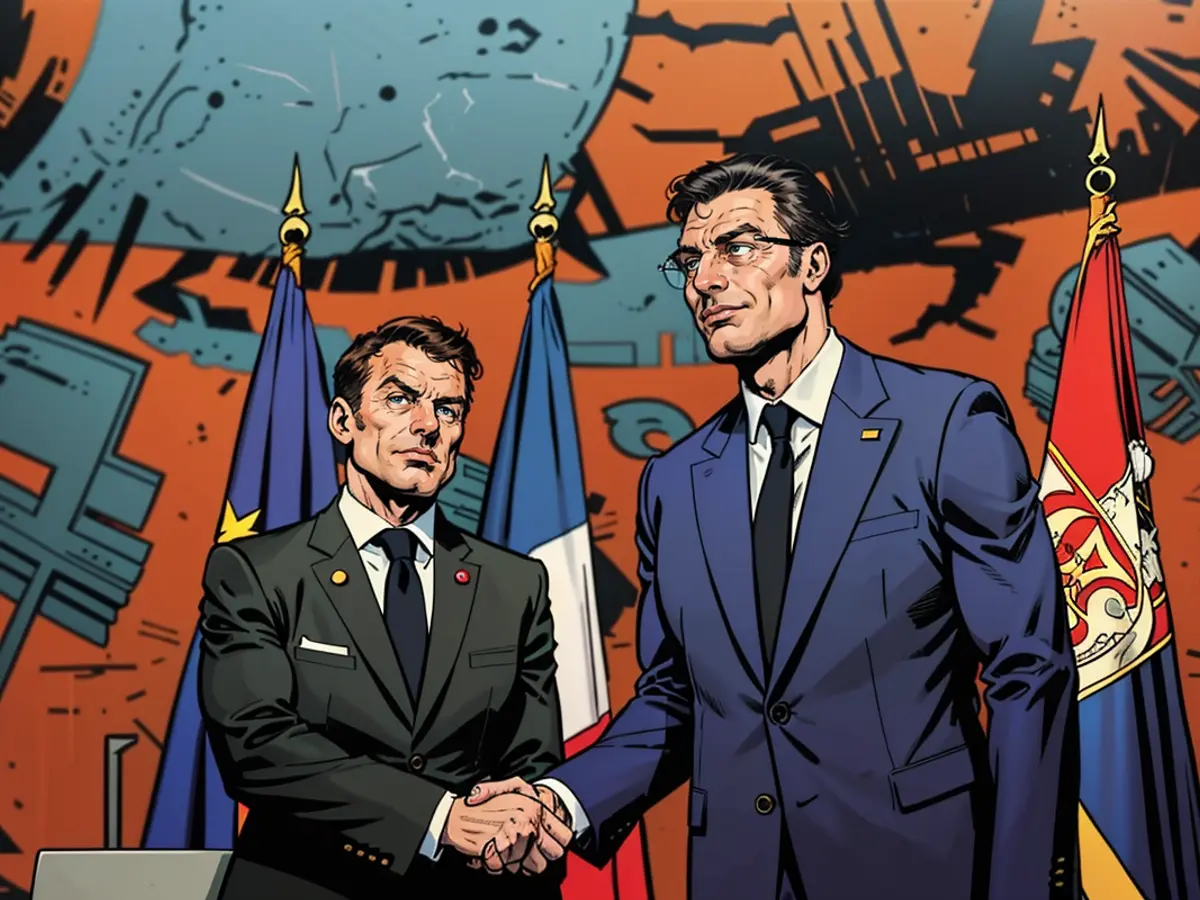France transfers combat aircraft to Serbia
After the Russian aggression towards Ukraine, EU hopeful Serbia isn't backing the West's sanctions against Putin. Contrasting this, France is finalizing a deal to sell a dozen cutting-edge warplanes to Serbia's government. In the French capital, these secretive negotiations are seen as a tactic to secure Serbia's allegiance to Europe.
Macron and Serbia's leader, Vucic, have struck a significant arms deal. In Paris, Macron and Vucic ink a mega-billion-euro deal for twelve high-tech Rafale fighter jets during Macron's initial visit to Serbia. Given Serbia's historically robust ties with Russia, Macron speaks of a "tactical shift" by Serbia and a "chance for Europe".
Vucic and Macron signed the agreement rapidly after Macron's arrival for his two-day visit to Serbia. The paperwork, as per manufacturer Dassault, outlines the procurement of nine single-seat and three twin-seat Rafale aircraft by 2029. The Rafale is a versatile combat aircraft capable of aerial combat, ground and naval strikes, along with reconnaissance missions. "We are thrilled to join the Rafale family. We owe our gratitude to French President Macron for allowing us to purchase the new Rafale," Vucic declared during the signing ceremony.
The acquisition of the jets has political implications: Serbia gained EU candidacy status in 2012, but maintains close relations with the Kremlin despite the Russian invasion of Ukraine. EU officials have urged Serbia to implement sanctions against Moscow, but Serbia has yet to comply. Macron described the Rafale deal as "a significant change" and added: "This is a sign of strategic adaptation amidst mounting pressure, highlighting true strategic audacity, and an opportunity for Europe." The Rafale sale aims to bolster a "long-term alliance" between France and Serbia within a more prominent and autonomous Europe.
France boosts commerce with Belgrade
Before Macron's visit, Serbian President Vucic claimed in an interview that nearly all of Serbia's air defense fighters and all of its combat aircraft were Russian-made. He further underlined the need for Sergea to evolve, change habits, and adapt its military to prepare for future threats. Vucic had earlier suggested that Serbia could spend up to three billion euros on the French multi-role combat aircraft, a figure confirmed by Dassault. At the agreement signing, Vucic mentioned "2.7 billion" but did not clarify the currency.
Prior to Macron's visit, French government sources reportedly mentioned the Rafale sale aiming to "bind" Serbia to the European Union. Belgrade could potentially make a "strategic choice" to collaborate with an EU member state, it was suggested. Jean-Noël Barrot, a former European Minister, had explained that if France hadn't offered modern French warplanes to replace the Russian ones in Serbia, the Balkan country would become a "gateway to instability" across Europe and a "platform" for "authoritarian regimes" from Russia to China.
Apart from the Rafale deal, negotiations during Macron's trip to Serbia are anticipated to involve cooperation in nuclear power technology for civilian purposes. France has intensified its commercial engagement with Serbia over the past dozen years. Importantly, French firm Vinci oversaw the renovation of Belgrade's international airport, and French firms are slated to construct the city's first metro and a state-of-the-art sewage treatment facility.
Despite EU hopeful Serbia not backing the West's sanctions against Russia, France continues to strengthen its ties with Serbia. Following Macron's visit, France and Serbia finalize a deal to sell a dozen advanced Rafale fighter jets to Serbia's government.
This significant arms deal between Macron and Serbia's leader, Vucic, marks France's boost in commerce with Belgrade, furthering their long-term alliance and potentially influencing Serbia's strategic choices.








